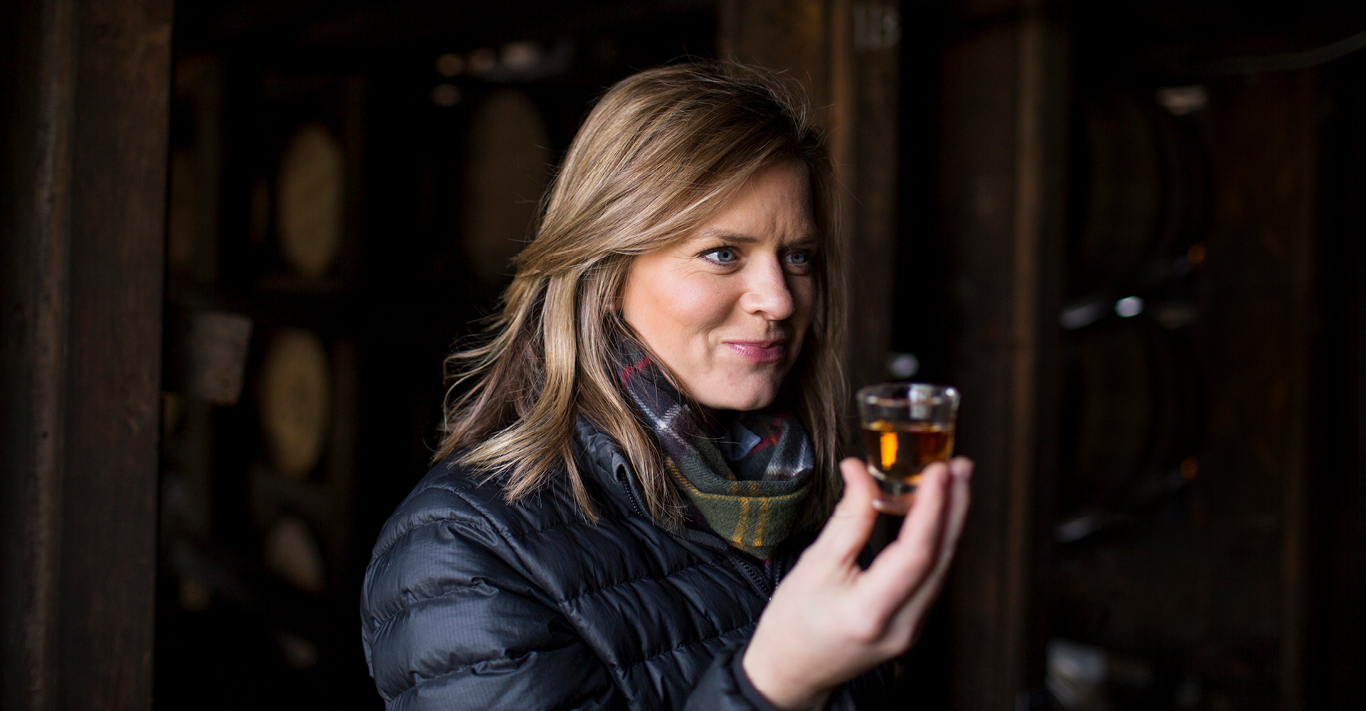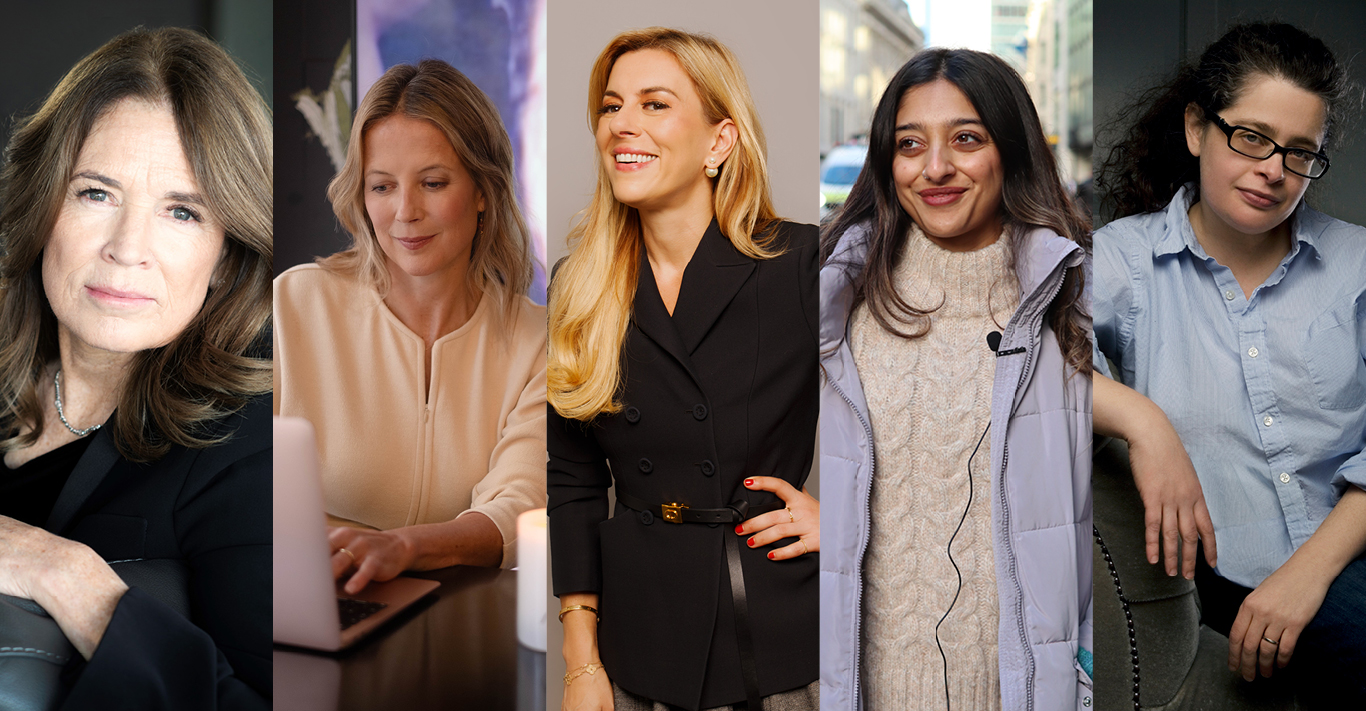WORDS
Amy Raphael
ILLUSTRATION
Luis Mazón
American businessman Howard Schultz once said that, ‘if you’re an entrepreneur, you’ve got to dream big and then dream bigger.’ It may sound simplistic, even childish, but a dream is the foundation of every success story – alongside a blend of passion, ambition, determination and a lot of hard work. The modern entrepreneur is a far cry from the ‘greed is good’ materialistic drive that characterised the 1980s. Eschewing stereotypes and any perceived barriers, this is a diverse generation of creative talent, who care just as much about giving back and protecting the planet as they do about hitting KPIs. From sustainable clothing to contemporary furnishings and high-end Nigerian snacks, Brummell introduces you to this exciting new era of entrepreneurs.

Olivia Wollenberg, Livia’s
In 2014, Olivia Wollenberg was studying for her second masters in neuroscience, specialising in paediatric neuropsychology, when she started to think it might not be the right career for her. At the same time, she was diagnosed with several food intolerances. Although the intolerances weren’t life threatening, the change in her diet brought unexpected challenges. ‘Five years ago, it was difficult to go into a restaurant and say you were wheat- and dairy-free and unable to eat garlic. People would look at you as though you were an alien.’
Wollenberg didn’t want to let her intolerances stop her from treating herself, but when she searched for free-from cakes and biscuits, she couldn’t find anything that was ‘made from good ingredients, but still felt indulgent’. As a last straw, she decided to bake herself a vegan cake free from gluten, wheat
and refined sugar. ‘It was such an easy thing to do that I couldn’t believe it wasn’t a thing,’ she says, laughing. ‘I thought, “I’m going to make this a thing!”’
Eleven weeks later, Selfridges was stocking her range of vegan ‘superfood crumbles’, all of which were free from gluten, dairy and sugar. ‘It wasn’t easy,’ explains Wollenberg, now 30. ‘I probably slept for no more than an hour each night and when I enrolled myself on a business course, one of the tutors mocked my superfood crumble idea, saying that treats are meant to be naughty.’
For the first 18 months, Wollenberg ran her company, Livia’s, from her parents’ kitchen in London. In 2016, she moved her business into a factory in north London and launched her range of Raw Millionaire Bites, Dunx biscuits and Nugglets (‘Chocolate covered little squidgy nugglets of heaven’). The business tutor must be blushing; Livia’s currently employs 14 people, is stocked by Whole Foods, Ocado and Tesco and, in 2018, enjoyed a turnover of over £1 million.
Wollenberg’s business coincided with the food industry finally starting to embrace free-from and vegan food, but nonetheless progress was slow. ‘People were sceptical and I had to be resilient. I was lucky that the buyer at Selfridges was a free-from customer herself and loved the fact that I was starting a business at the age of 25. I’m not sure that I took many transferable skills from my neuroscience studies, but UCL taught me to be bold and brave and I carry that through today. I also have a very strong work ethic and I refuse to give up.’
Especially, one imagines, if someone tells her that her idea isn’t up to much. ‘Exactly. I never take no for an answer.’

Steve Tidball, Vollebak
A Black Squid Jacket, based on 500 million years of evolution and using two billion microscopic glass spheres, that changes colour just like the adaptive camouflage of the squid. A plant and algae T-shirt made from pulped eucalyptus, beech and algae that will biodegrade in the earth within 12 weeks. A jacket made out of graphene, the only material on the planet that has won a Nobel Prize. A solar-charged running jacket that glows in the dark and was named one of Time magazine’s Best Inventions of 2018. And for just under £700, a Deep Sleep Cocoon, a self-contained microhabitat built for the first mission to Mars that was winner of Wired magazine’s Gear of the Year 2019.
It’s been just four years since twin brothers Steve and Nick Tidball set up their clothing brand, Vollebak, as a London-based start-up to make ‘clothes from the future’. They knew nothing about fashion or business, but they did know, as elite adventurers, that everyone was wearing inconspicuous gear that didn’t offer much in the way of groundbreaking materials.
‘My brother and I are in our early 40s now, and we’ve worked together since we were 21,’ says Steve Tidball. ‘Nick studied architecture and I studied art history and then we both started together in advertising. During the final five years we spent in the industry, we were doing a huge amount of adventure sport, racing ultra marathons in places like Namibia or the Amazon jungle. These two wildly disparate things came together in our heads: we couldn’t see any brands being as innovative as the people taking on these extreme adventures. In quite a naïve way, we thought we could start an adventure brand and take on the goliaths of the industry. So we had a crack at it.’
The Tidball twins, following the fundraising blueprint set up by one of their heroes, Richard Reed at Innocent Drinks, sent out emails basically asking if anyone knew any rich people. Their pitch? ‘We are going to make a clothes brand that combines the aesthetics and intellectual rigour of [the legendary Spanish restaurant] El Bulli with the science of Nasa.’ Enough people with deep pockets saw the potential of Vollebak, which since its launch as an internet-only business, has consistently sold out of its mind-blowing, game-changing clothing.
Steve Tidball talks a good talk. He refers to us as a ‘polymorphic species’ who will, in the near future, have access to bionic eyesight or strength, which means that athletes can push themselves even harder. He says clothing is going to start enhancing strength and intelligence and interacting with the environment. It all sounds very sci-fi. ‘It is! We are terrifically far ahead in our sector and I can tell you that clothing will become more superhero, whether it ends up as worm food or in space.’
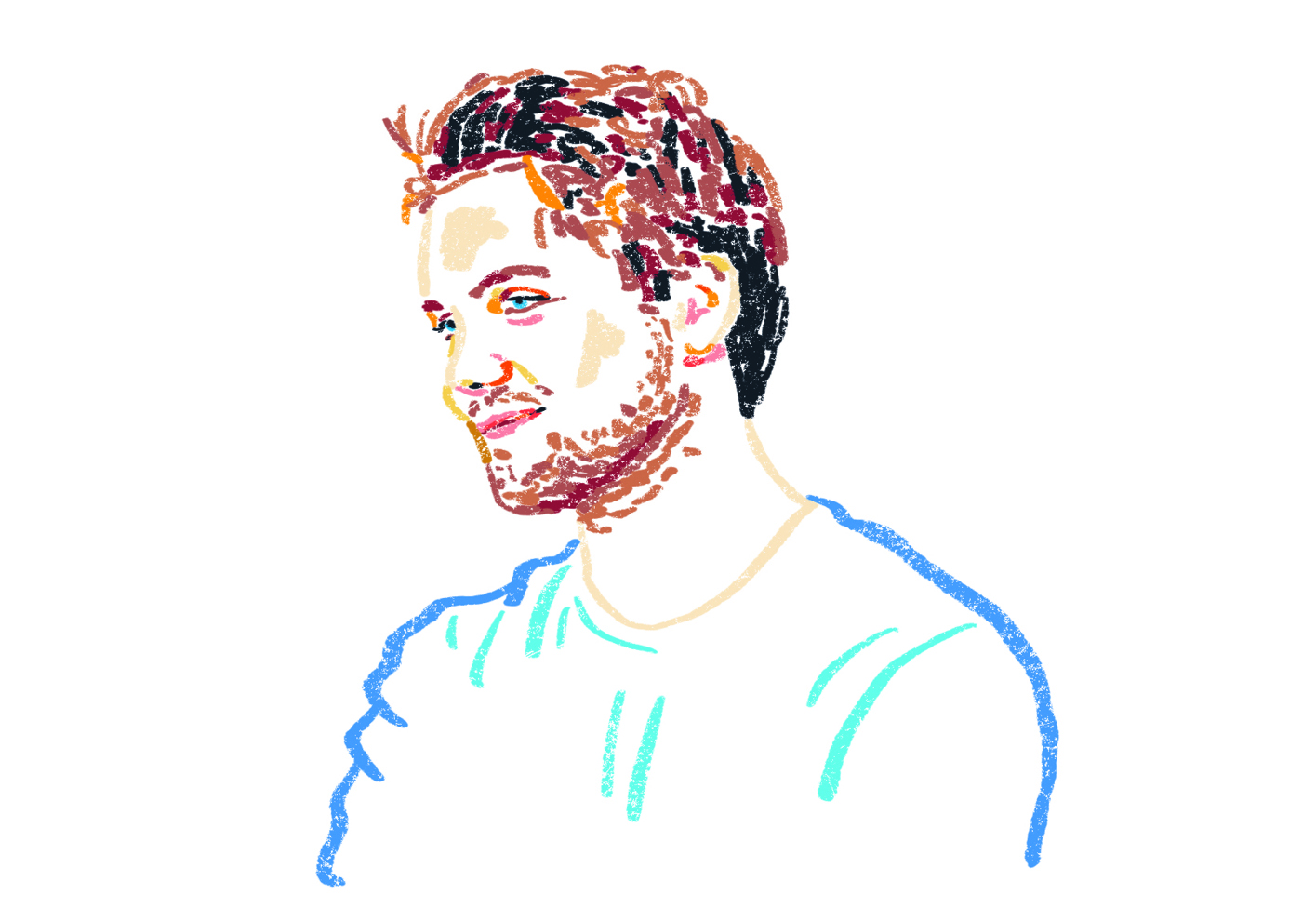
Daniel Schofield, furniture design
Daniel Schofield was one those kids who didn’t concentrate in class, messed up at school and then ‘fell into design’. He studied graphic design at art college, went to university and decided he’d rather do something more practical. He did a carpentry apprenticeship, was a ‘typical white van builder’ for four years and then applied for the furniture and product design course at Sheffield Hallam University. After graduating, Schofield set up his own company and immediately caught the eye of Benchmark Furniture in London; they offered him an internship.
Benchmark’s wood-based design is all about craftsmanship and precision, which suited Schofield’s perfectionist streak. It was also co-founded by the late Sir Terence Conran, who singled Schofield out as ‘one to watch’. While Conran wasn’t quite offering patronage, his support gave Schofield a fantastic boost after all those years of not being quite sure what he wanted to do. ‘I really wanted to work for Benchmark because they make such good quality products, but the learning curve was really steep,’ says Schofield. ‘And I was so nervous when I first met Terence. We have never talked about it, but I guess he likes the simplicity of my work.’
The combination of carpentry experience and an arts-based education have served Schofield well. Since graduating in 2012, he has won an award nearly every year, from New Design Britain Award Winner in 2013 to Homes & Gardens’ Best Furniture Awards in 2019. And, after he was selected to participate in the 100% Futures exhibition at the London Design Festival in 2018, he started to collaborate with, among others, Ercol, SCP and Another Country. He also designed a series of gently curved pine stools for a Danish brand called PLEASE WAIT to be SEATED.
His work is both practical and timeless, from ‘Blur’, a fluted glass table with rounded edges to ‘Backer’, an understated yet gorgeous chair manufactured for award-winning British furniture designers Hayche. ‘That was my first chair!’ Schofield says. ‘You get a lot of problems to solve with a chair. It was quite
a challenge, but a lot of fun.’ The simplicity of his work is, of course, deceptive. ‘My furniture takes a long time to design and make, but the simplest stuff lasts the longest; people are less likely to throw it away because it’s not over-stylised. I buy lots of second-hand design books and try to analyse designs that are still around decades after they were first made. I’m hoping my work will be around for a long time.’
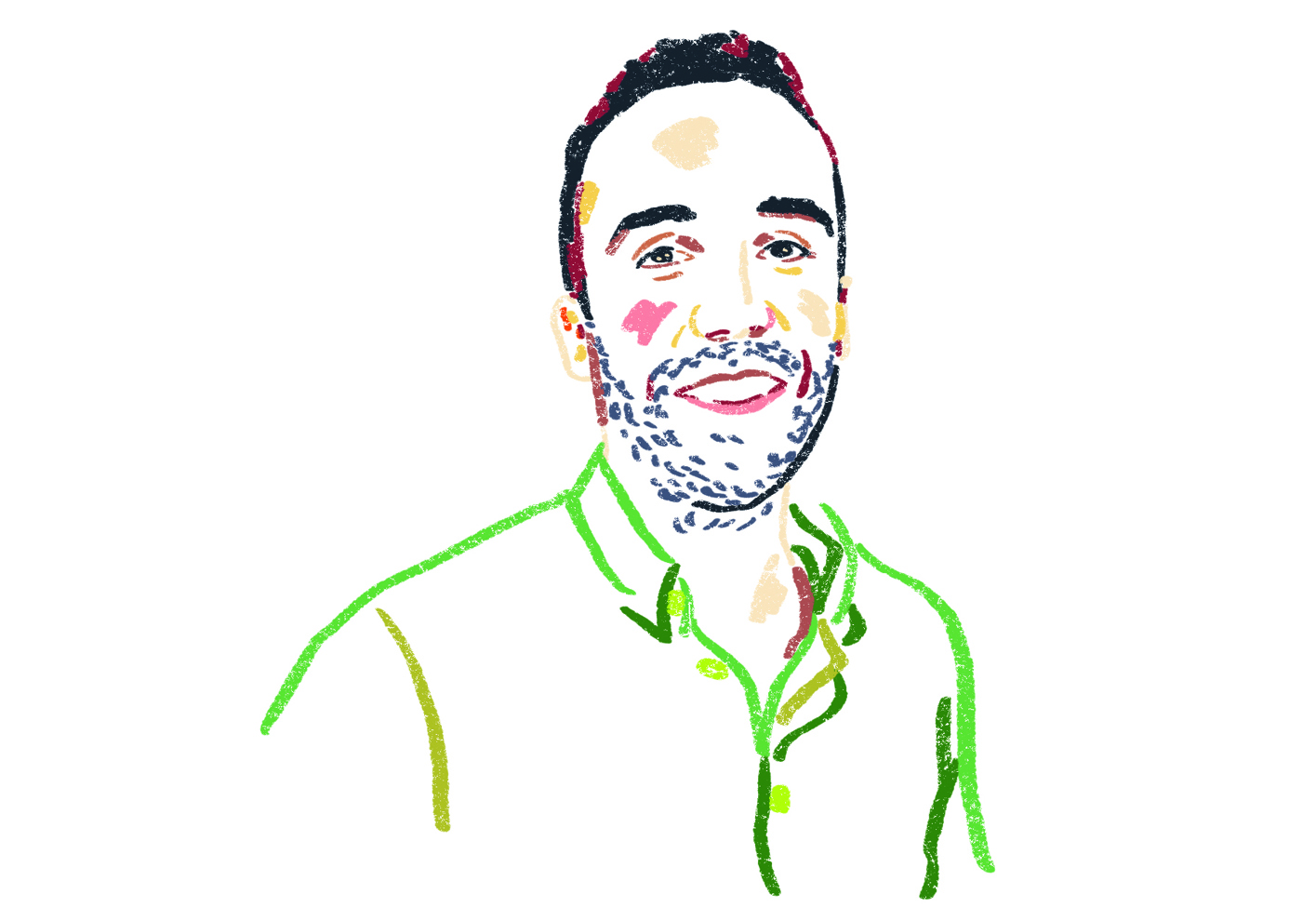
Sam Watson Jones, Co-founder, Small Robot Company
It wasn’t one particular thing that made Sam Watson Jones realise farming had hit a dead end. It simply dawned on him late one night that the way his family had been running the farm for four generations no longer worked. ‘It had become nonsense both economically and environmentally,’ he says. ‘There had to be a better way of doing things.’
Convinced that the future of farming would involve technology, he talked to Professor Simon Blackmore at Harper Adams University, a specialist agricultural university in Shropshire with a strong focus on food security and environmental needs. ‘There’s all this talk in farming about driverless tractors being the future, but Professor Blackmore said that small, smart robots would be preferable to heavy tractors that simply compact the soil.’ Watson Jones travelled around the country, asking farmers how they would feel about a new model of farming and, when the response was largely positive, he started Small Robot Company with Ben Scott-Robinson, an experienced entrepreneur with a background in user-centred design.
Since March 2018, the start-up has won myriad awards and, last year, Watson Jones and Scott-Robinson were both in Business Leader’s list of Top 30 Inspiring UK Entrepreneurs. Small Robot Company certainly has big ideas. ‘We are developing tech that enables per-plant farming,’ says Watson Jones. ‘At the moment, farmers dose whole fields in herbicide to kill a few weeds, but Tom, Dick and Harry, our robots, can target weeds and kill them with an electrically-charged arm.’
So it is precision, not speed, that will define the future of farming. ‘We aren’t inventing new tech so much as applying it to a new environment,’ says Watson Jones. ‘For example, we have the potential to gather data about soil. Our understanding of soil is quite poor, despite the fact that most of the antibiotics we use originated from soil bacteria. Soil is a huge potential source of good and yet we are slowly destroying it with our farming systems.’
‘The long-term aim is to feed the world without damaging the planet by using swarms of lightweight robots instead of tractors. We have to act before it’s too late.’

Chika Russell, Chika’s Snacks
Chika Russell was born in London, the youngest of seven, and each summer the whole family decamped to Nigeria. She loved spending time with her extended family in West Africa, climbing trees, exploring the rich culture and cooking plantain crisps and hand-toasted peanuts.
Russell studied accounting and economics at university before becoming a management accountant at Royal Bank of Scotland and ICAP. She worked long days, sometimes in excess of 12 hours and, when she had her first child, realised she would barely see him if she continued to work in the City. Around the same time, she was putting on private art shows in her Notting Hill home at weekends and noticed that her guests couldn’t get enough of her homemade Nigerian snacks. ‘I realised that no one was representing Africa in the market place in a premium, accessible way. Basically, I saw an opportunity and took it.’
In 2015, she went on Dragon’s Den, pitching for investment in her Nigerian snacks. Every single one of the Dragons made her an offer, but she chose Peter Jones, who pledged £30,000. And then, deciding she was ‘better off’ delivering the concept herself, she decided to walk away and look for investment elsewhere. In the following two years, she secured £800,000 from investors and Chika’s snacks are now sold in Waitrose, Sainsbury’s, Whole Foods and elsewhere.
Running a successful snack business was never going to be enough for Russell. The company is committed to giving back to communities and as such, not only sources ingredients from across Africa, working directly with farmers, but also donates a percentage of profit to support the education of African girls. ‘I decided early on that the brand should be about an African girl transitioning to a woman, which is why the woman on the label of Chika’s snacks carries a pan on her head. She is strong, resolute and determined.’
Just like Chika Russell herself? ‘Absolutely. My personal motto is GOWI: get on with it.’ Does she miss working in the City? ‘Not remotely. At the same time, the City taught me to be incredibly resilient and to have the thick skin needed for business. It will always be part of who I am and, ultimately, it’s helped me build Chika’s.’

Shannie Mears, The Elephant Room
Shannie Mears is a 21st-century Renaissance woman. As well as being co-founder of The Elephant Room, a creative company set on disrupting the advertising industry, Mears is chief talent officer and brand manager for GUAP (the world’s first video magazine), she runs an event series called Girls Let’s Talk (a recent event was entitled ‘For the love of Black Girl Magic’) and this academic year she is guest lecturer in customer mindfulness at Kingston University. Early last year, she was invited to sit on Downing Street’s Race Disparity Audit Advisory Board and, in June 2019, Management Today listed her as one of their ‘35 Women under 35’. She was just 25 at the time.
The Elephant Room’s ethos is to change advertising by embracing diversity, pointing out on its website that ‘today, most agencies are less diverse than the client companies they serve’. Clients already include Converse and Decca Records, who are evidently impressed with the agency’s determination to cross collaborate. ‘The traditional concept of advertising is too strict,’ says Mears. ‘It should be many things. We work with film makers, theatre directors, stylists and people creating content in magazines. A traditional ad agency wouldn’t put itself in that space.’
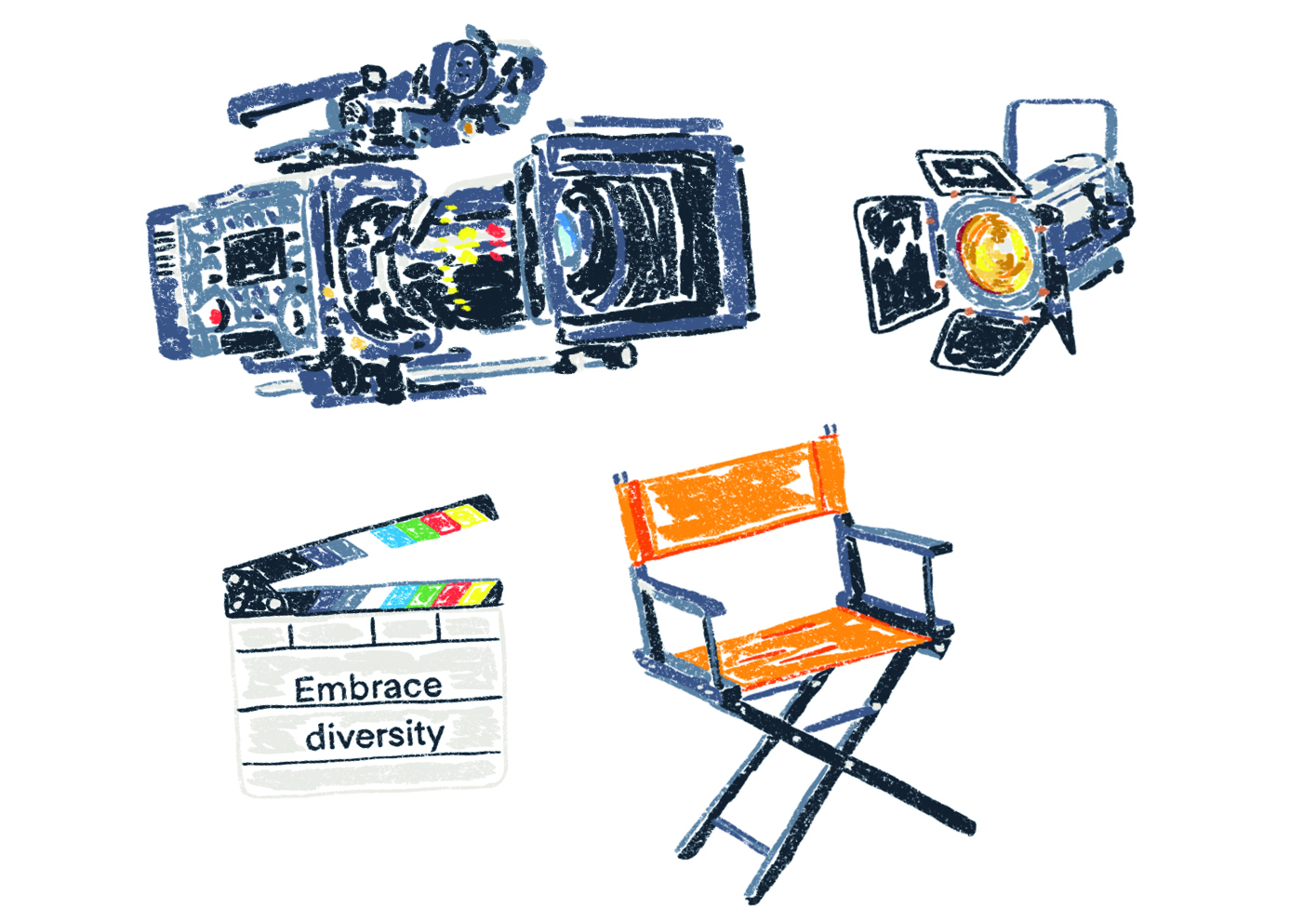
It’s hard to imagine Mears indulging in much downtime; she seems to fill every spare moment with an event or meeting, always pushing to get her voice heard. Her motivation, she explains, is in direct response to her background: she grew up with a single mum in Birmingham. ‘My mum was always in survival mode. She had no time to dream. I’m so lucky that when I have an idea, I have a network that can help me. It’s not always easy for me as a young black female, but I try to think positively. When I set up The Elephant Room with Dan Saxby, I know people were thinking I was just this lucky black girl who had met a white man with experience in the advertising industry. But Dan very much understands his privilege and I didn’t just get lucky – I’ve worked hard for everything I’ve achieved.’
By the time she’s 30, Mears, who comes from a dance background, would like to be in a position to set up a studio where ‘people who don’t usually have access to such spaces’ can dance alongside doing brand work and personal development. She is, with The Elephant Room, already doing the antithesis of what Saatchi & Saatchi did in the nineties. She roars with laughter. ‘The total, total opposite. Of course we want to be in a position where we make an incredible amount of money, but we also want to put the money back into society. There’s so much disparity in the world and I’d personally like to be able to change that in some way.’

Lisa Eldridge, Founder
Lisa Eldridge made her first make-up tutorial for YouTube in December 2009, when she was working with the likes of Prada, Hermès, Chanel and Calvin Klein as well some of the world’s top fashion photographers. ‘It was unusual for a successful make-up artist to be putting content on YouTube back then,’ says Eldridge. ‘Everyone was quite snobby about it; they couldn’t see the value of it and it was all considered very amateur. But I saw a beauty video for the first time in 2008 and immediately knew it would change the beauty industry.’
Eldridge was ahead of the game by seven or eight years, but now everyone has caught up and of course no one in the fashion industry remains disdainful of her YouTube tutorials; how could they be when she has two million subscribers and the tutorials have had nearly 210 million views to date? Demand for the lipsticks she discussed on YouTube often sold out, which led to Eldridge launching her own make-up collection in 2018. But it wasn’t just brightly-coloured lipsticks that were catching people’s eye; it was also the gorgeous gemstone rings she wore in the videos. ‘My rings are made by William Welstead, but they are very expensive and he only produces limited numbers. When I discovered that two companies in America were making “Lisa Eldridge” rings, I decided to start making my own.’
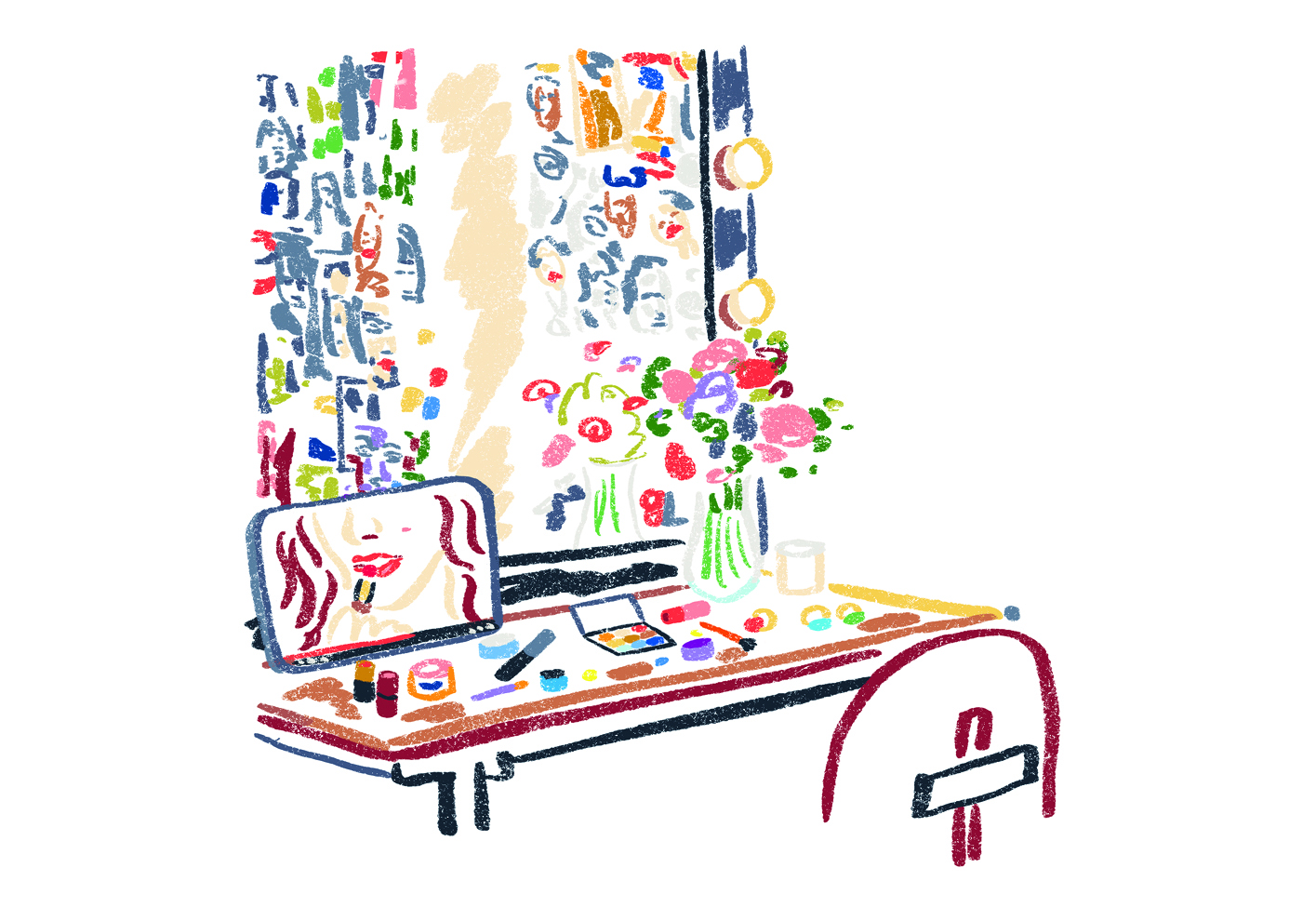
It’s a pretty hands-on business: Eldridge wanted to have a relationship with everyone in the supply chain, from the ‘really good, ethical gemologist’ she met via Welstead to the people working in the Cornish workshop who polish the gems to the ‘famous jewellers on Bond Street who I’m not actually allowed to name’, who set the rings. She even found a box maker in Norfolk who works for Cartier and who uses vegan suede, sourced from Japan, to create the vintage blush boxes in which each of her rings is presented.
The rings, ranging from around £300 to over £7,000, have been ‘selling like crazy’ since launching two years ago. Since all those YouTube fans referred to Eldridge’s rings as ‘the Lisa rings’, she decided to personalise the brightly-coloured rings: the Marlene (after Dietrich) is green tourmaline and the Kate (Winslet) a pale blueish green, a gem the actress loves. ‘All the rings are named after close friends or women who have inspired me. I love working with colour both in make-up and with the rings; I’ve been a colour obsessive as long as I can remember. As a child, I used to draw circles on paper with wax crayons and then add a drop of water. The wax would hold its shape and I would have a make-believe jewel. Now I make the real thing and I almost can’t keep up with the demand.’




